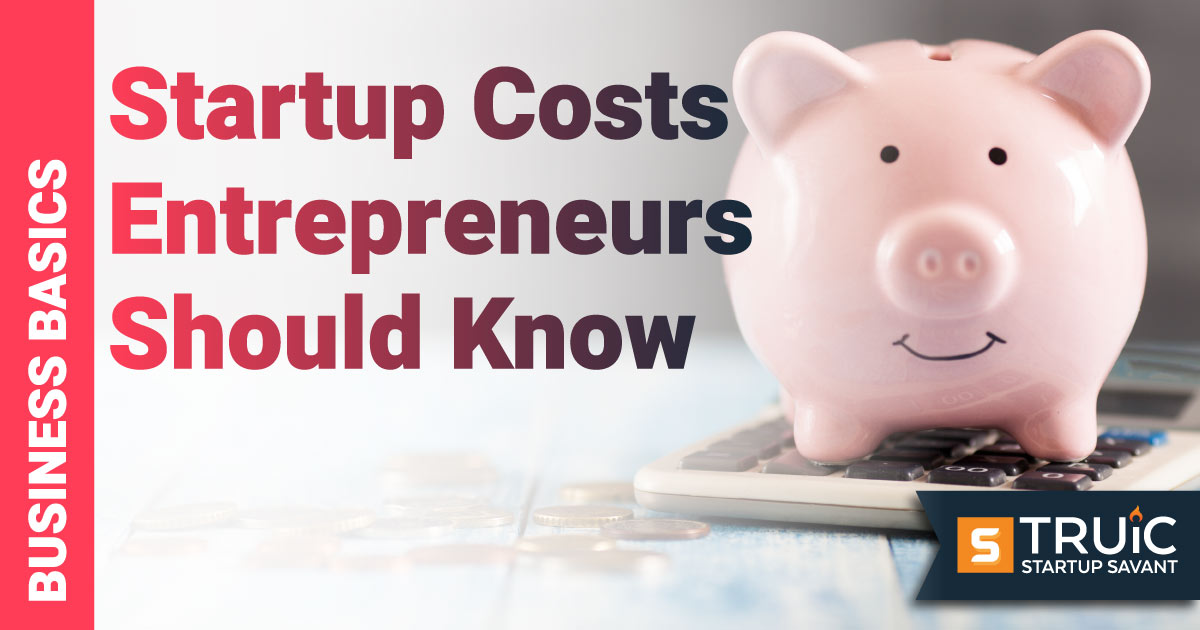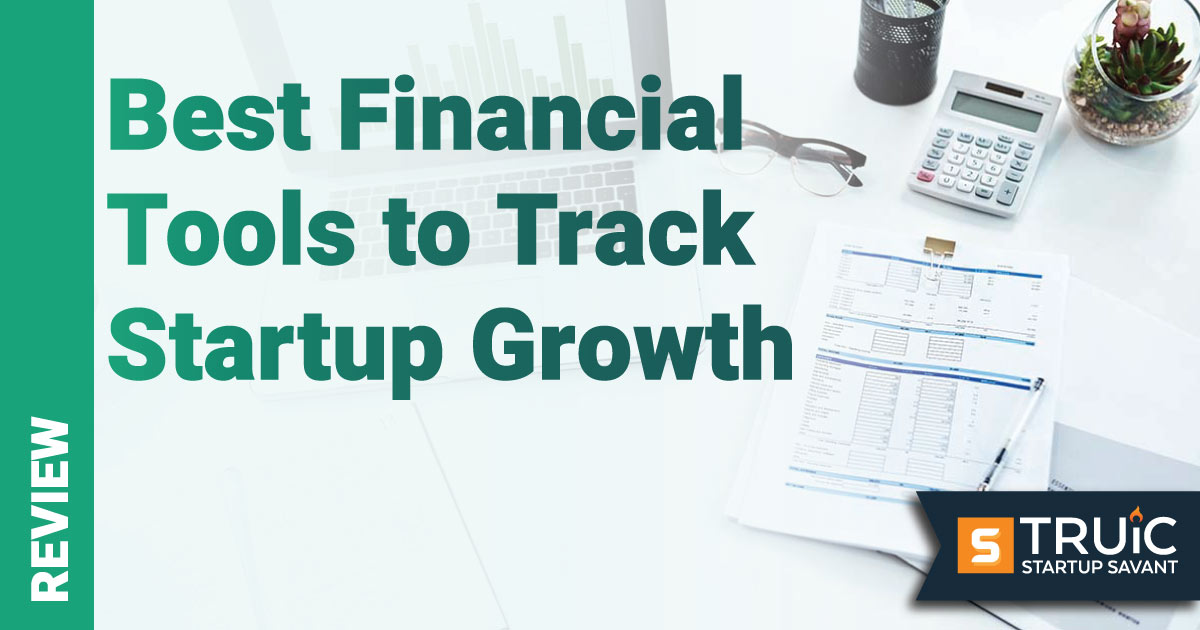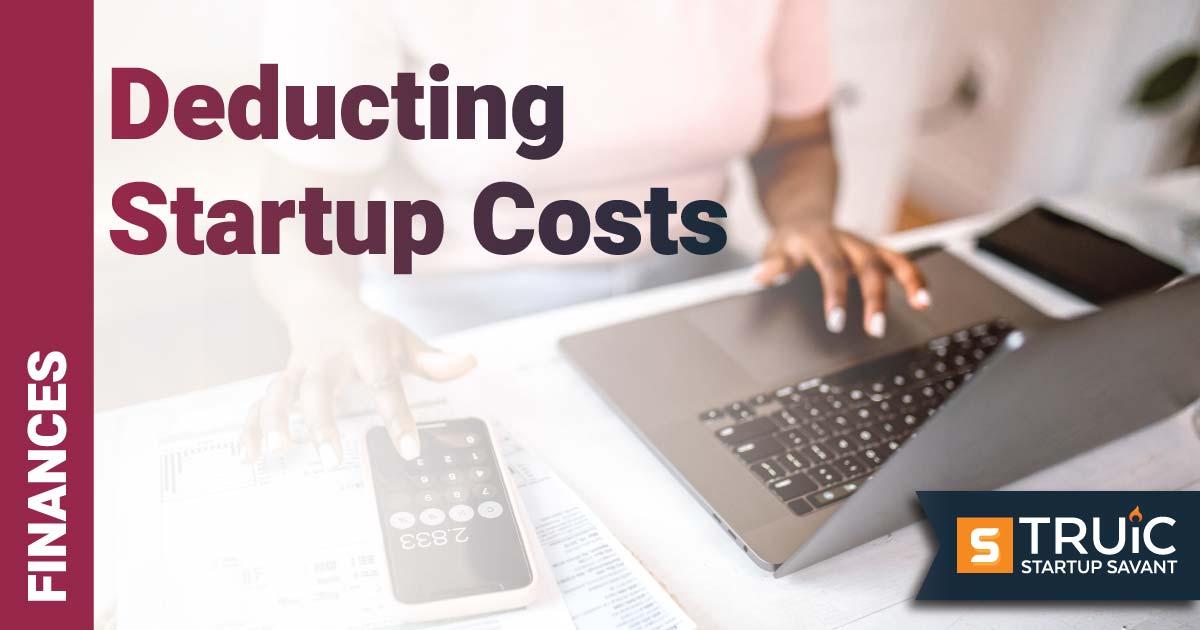Startup Costs Entrepreneurs Should Know

Last Updated: By Michaela Dale
If you’re in the process of launching a startup or even toying with the idea, the amount of expenses required to start your business is likely top of mind. While many variables affect startup costs, there are a few common expenses you can plan for when budgeting for your business venture. We’ve got you covered with this guide to the types of startup costs and how to calculate startup expenses so you can start financing your business goals.
Guide to Startup Costs
Every startup faces unique expenses with ecommerce and food delivery startups, for example, incurring specific business expenses. Yet, common business expenses like marketing, technology, and formation are universal.
For startup founders and small business owners, recognizing and planning for these costs is vital for startup success. This guide outlines common startup costs and demonstrates how to calculate them, ensuring your startup begins on a solid financial footing.
Types of Startup Costs: Fixed vs. Variable Expenses
First, it's important to familiarize yourself with the type of costs you can expect to accrue as a new business. Startup costs range from repeated and unchanging payments to costs that vary based on your business's sales volume — called fixed and variable expenses.
Fixed Expenses
Most startups incur a range of fixed expenses, which don’t vary with business activity levels. Here are some common fixed expenses startups might encounter:
- Rent or mortgage payments for office space
- Salaries or payroll costs for full-time employees
- Insurance premiums
- Software subscriptions
- Web hosting and domain name fees
- Utilities (although they can vary, these expenses often have a fixed base cost)
- Legal and accounting retainer fees
- Business loan repayments or other types of business financing repayments
- Equipment leases
Identifying and planning for these fixed expenses is crucial for managing cash flow and financial planning in the early stages of a startup.
Variable Expenses
Comparatively, variable expenses are costs that change based on a few factors like sales, the state of the market, and circumstances beyond your control. Some common variable expenses startups may incur include:
- Raw materials and inventory costs
- Shipping and delivery expenses
- Sales commissions.
- Marketing and advertising costs (some can be scaled up or down based on budget and strategy)
- Freelance or contract labor costs
- Credit card processing fees
- Travel-related costs
- Office supplies and printing costs
For startups, managing variable expenses effectively is key to maintaining financial flexibility and ensuring profitability as they scale.
Common Startup Costs
While every business will incur different costs based on their industry and business model, there are some common startup costs you can plan for when launching a new business.
Formation Fees
Organizational costs, such as startup formation fees, vary based on your chosen business structure. There are four common business entity structures: a sole proprietorship, a limited liability company (LLC), a corporation, and a partnership. Each structure includes different fees and requirements. For example, forming an LLC costs between $50 and $500, while forming a sole proprietorship costs nothing but offers fewer benefits than an LLC.
Market Research
Effective market research is an integral part of developing a strong foundation for your startup. Whether it's focus groups or market surveys, investing in market research can be a costly, but invaluable, tool for any startup looking to build a minimum viable product (MVP) and an effective marketing strategy.
Legal Fees
Hiring legal help can mitigate the risk of negative legal repercussions during the formation and operation of your startup. Typically, attorneys charge by the hour and vary greatly in cost. You can also opt to keep attorneys on retainer if their services will be used actively.
Insurance
The type of insurance your startup needs will vary, depending on where you're located, what type of business you're operating, and more. The most common insurance types startups need are general liability insurance, professional liability insurance, workers' compensation insurance, and commercial property insurance.
Payroll or Self-Employment Taxes
Paying your employees is one of the biggest expenses your startup needs to prepare for — making up between 25% and 50% of most businesses' budgets. This can include net pay, paid time off, benefits, and any additional expenses like commissions. In addition to this, you should factor in self-employment taxes, if applicable, which is a tax rate of 15.3% to cover Social Security and Medicare.
Rent and Utilities
Rent and utilities are fixed expenses that will vary based on your location and type of space. Generally, you can expect to pay around $2 per square foot for utilities; however, this is dependent on location and the type of business you're operating.
Supplies and Equipment
All the materials you'll need to launch and operate your business fall into this category. Depending on your business type, this can be a hefty percentage of your starting costs. Variable expenses for supplies and equipment will be maintaining, repairing, or replacing your equipment.
Inventory
Inventory expenses will typically depend on the number of sales your startup makes. A few factors that can affect the number of inventory costs you can expect are the time of year, the state of the economy, and the state of the market, such as its saturation level.
Marketing
Marketing is essential to the success of any startup; however, it doesn't have to take up your entire budget. Your startup's marketing costs should account for roughly 0% to 10% of your budget. Fortunately, with social media and online marketing available for free, a strong online marketing strategy can bring in customers without draining your budget.
Technology (Website, Software, etc.)
It's no secret that technology is an invaluable tool for startups — especially online businesses. Whether it's software to manage and operate your business or developing and maintaining your startup's website, this is an important fraction of your budget in an increasingly technological world.
How to Calculate Startup Costs
Research and Determine Expenses
Startup costs vary greatly, depending on several factors like location and industry. Research is pertinent to identifying what your expenses are and how to budget for them. This includes the necessary expenses to operate your business as well as state and federal requirements, such as fees, taxes, and insurance expenses. The latter is especially important to avoid fines and citations when launching your startup company.
Add Up Total Expenses
Once you've identified the expenses that apply to your startup, create a list with corresponding estimates to establish a total that you can plan your budget around. It's a good idea to overestimate the amount of money you'll need (unless there is a flat, unchanging cost) to provide your startup with a financial cushion.
Write a Business Plan and Include Expenses
Finally, and arguably most importantly, write a business plan that includes your expenses. A business plan is a roadmap for the beginning years of your startup's life. This plan outlines the necessary steps to achieve important milestones. Additionally, investors will undoubtedly want a well-crafted business plan to understand your business goals and capabilities before investing in your startup company.
Startup Costs Calculator
Disclaimer: This calculator is only meant to be an estimate of startup costs. Startup expenses can vary depending on the type of business you’re running.
Enter the startup expenses that apply to your business:
Startup Cost Calculator
Startup Costs Summary
Identifying and budgeting for business costs are both essential steps to starting a startup. For new entrepreneurs, it's important to identify, understand, and plan for the obligatory expenses that come along with business ownership to build a strong foundation for your startup's success. For more in-depth information about launching your business, read our guide on how to start a startup to learn more.


